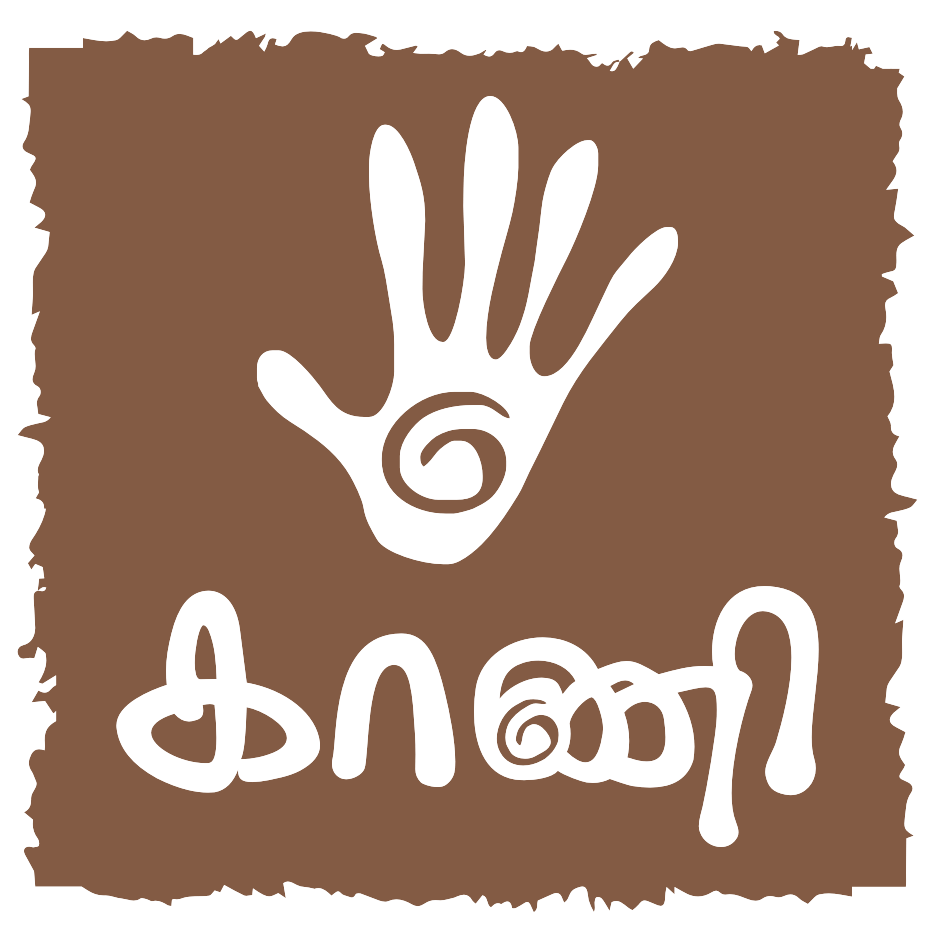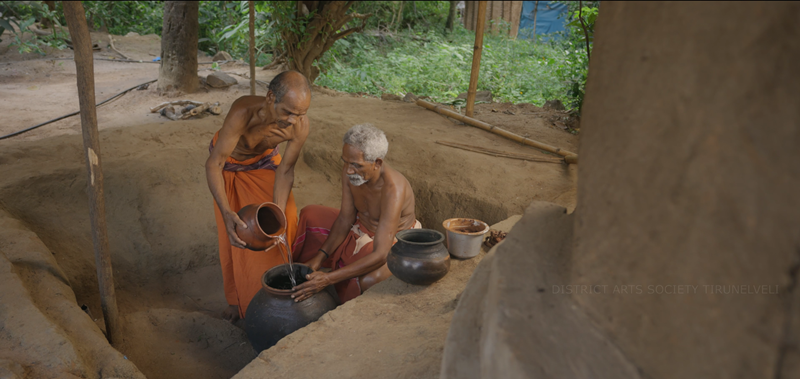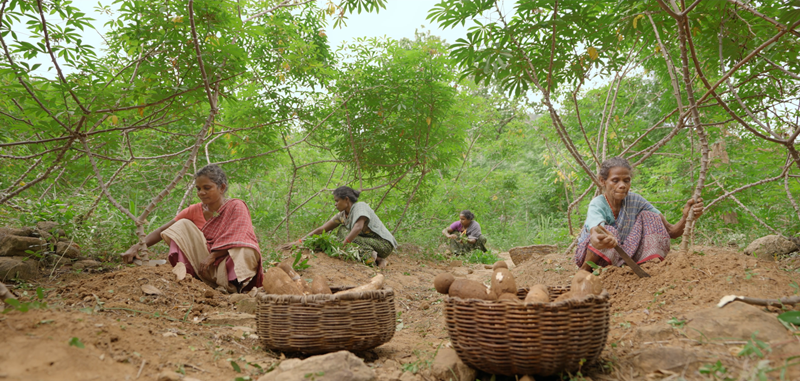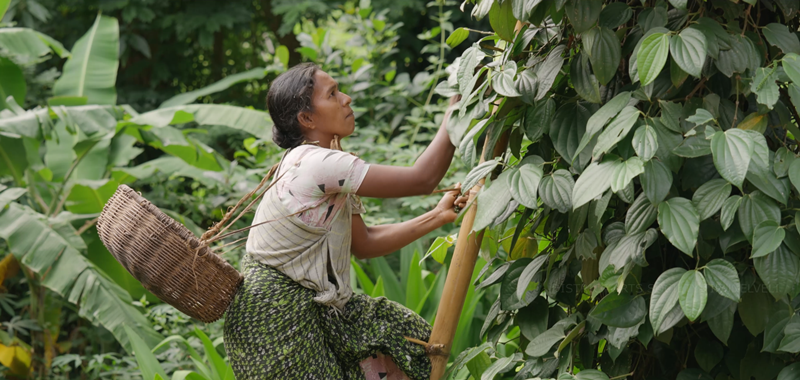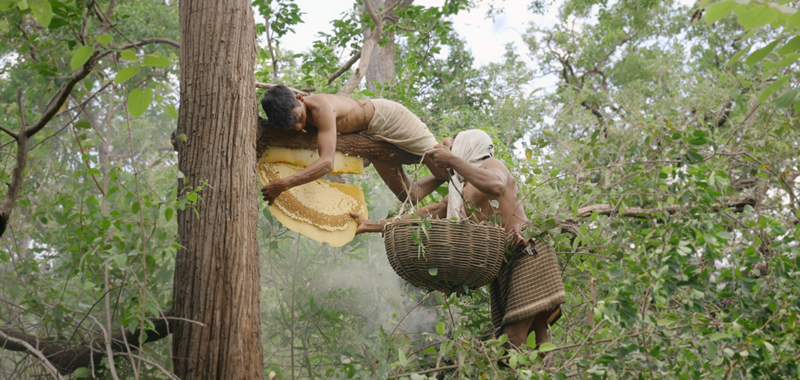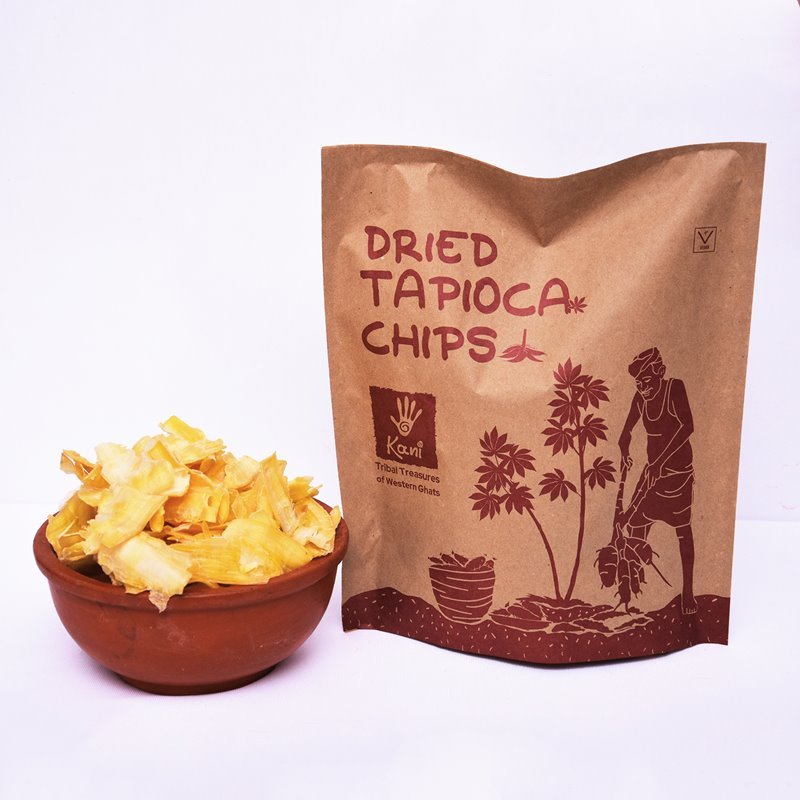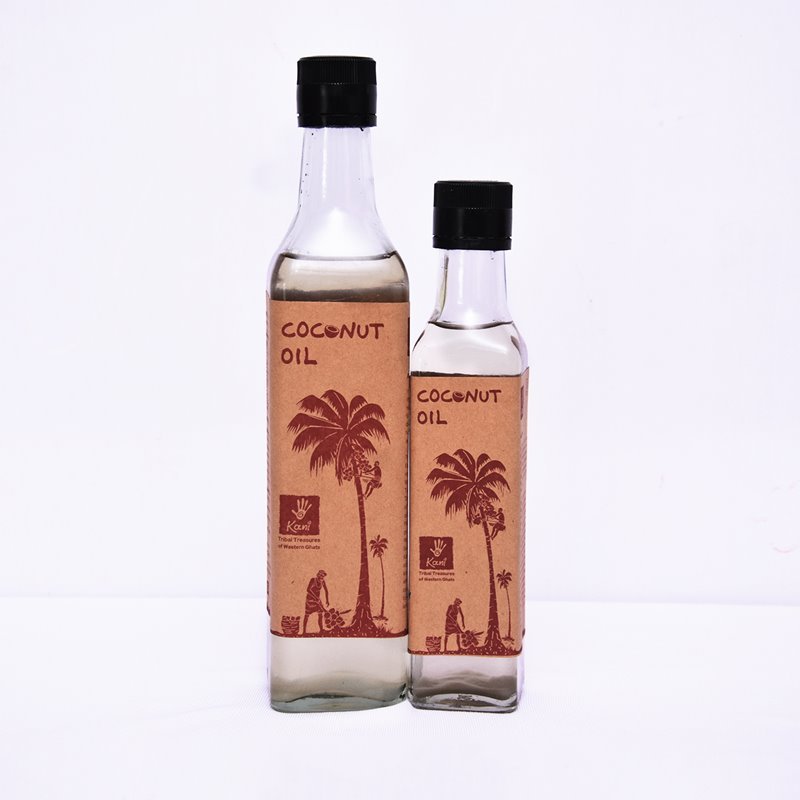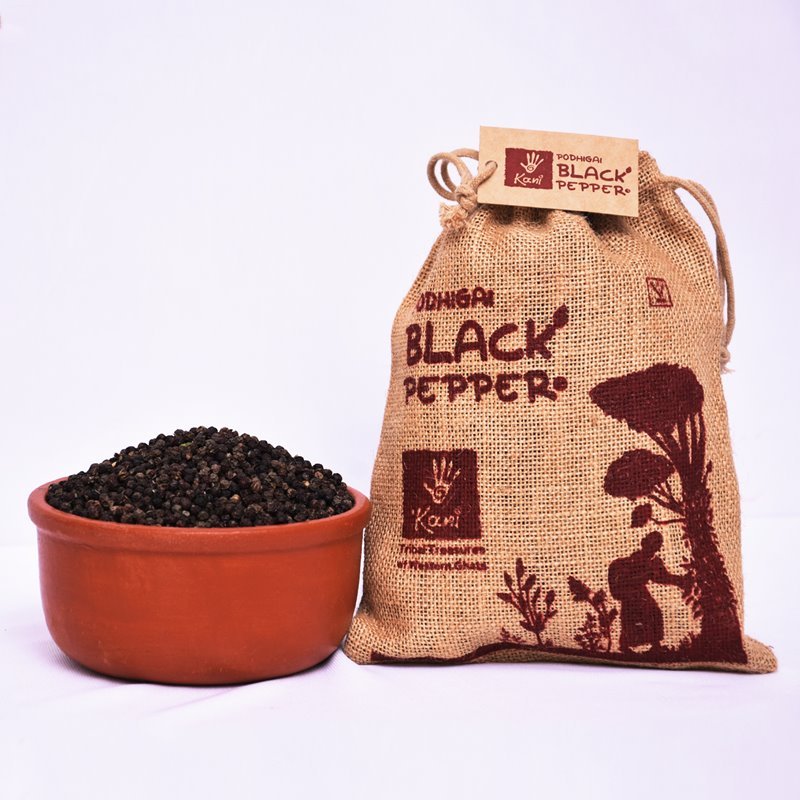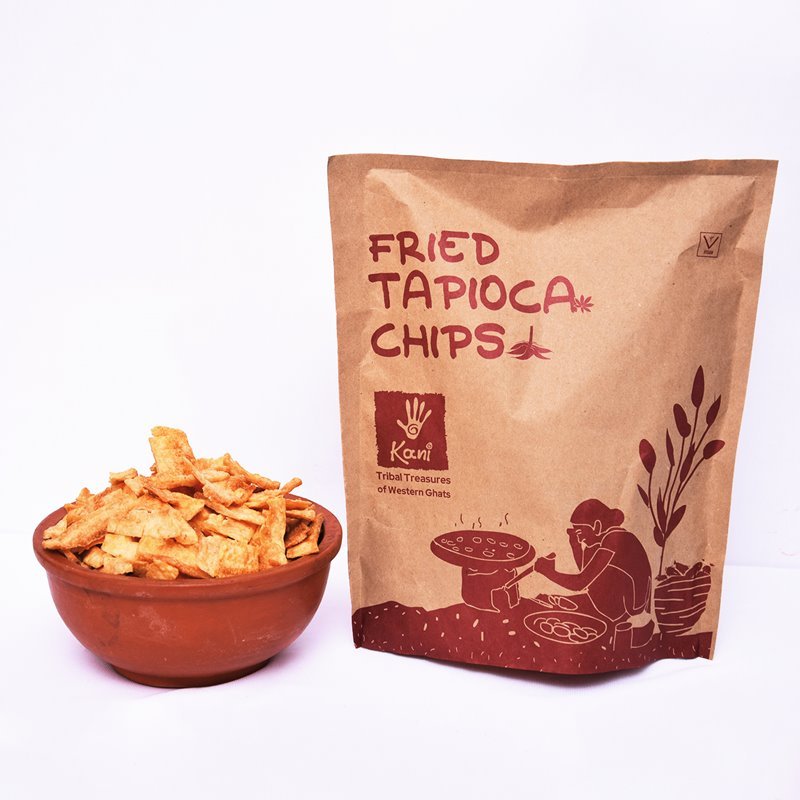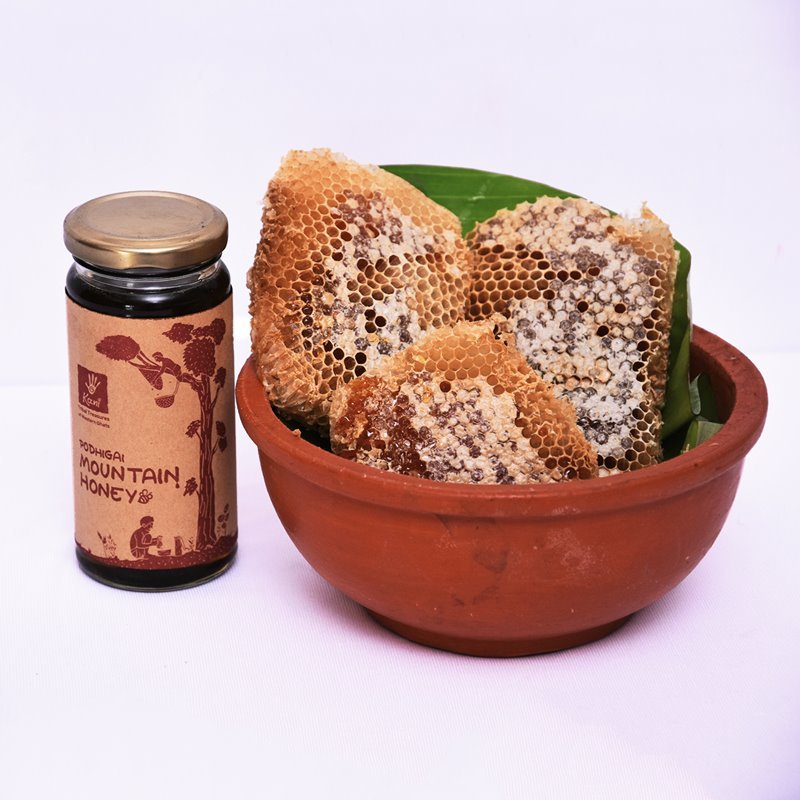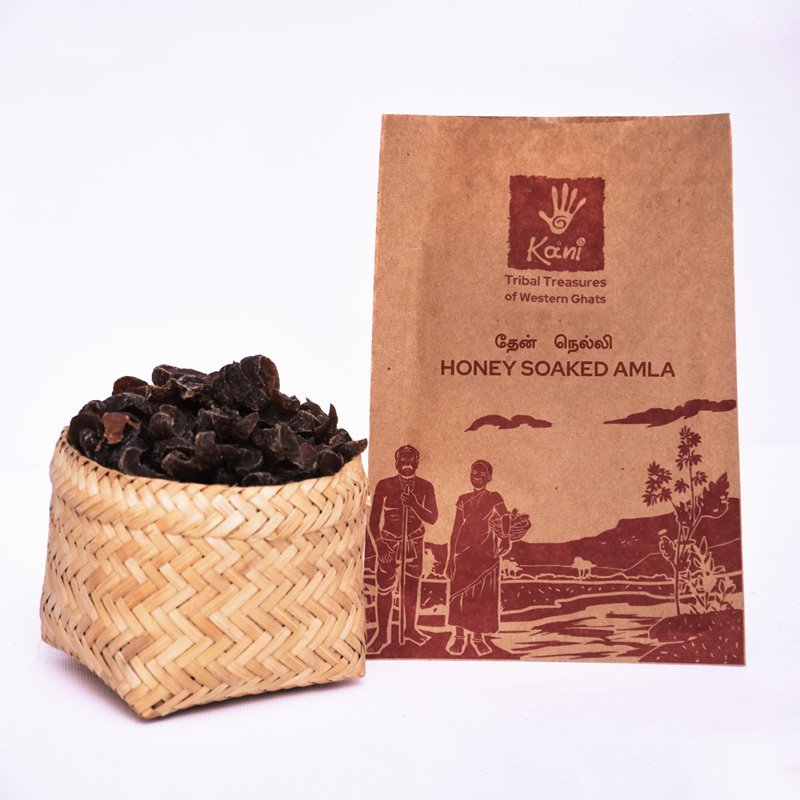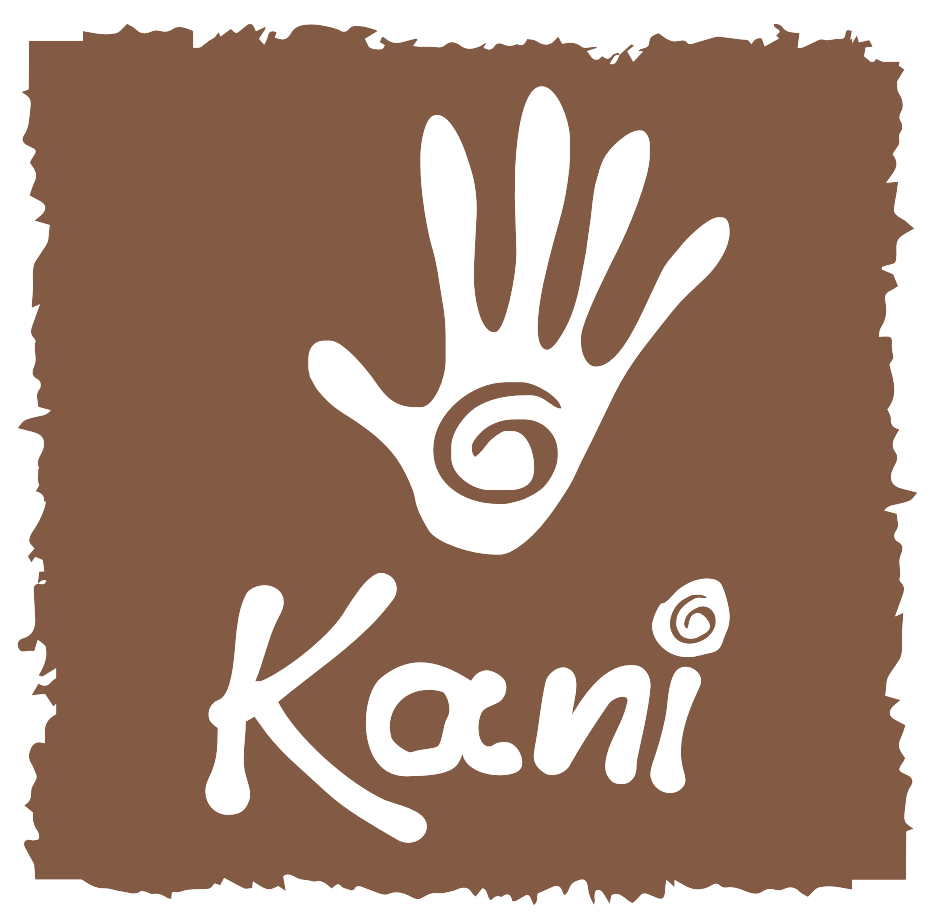
Kani Tribes
From the hills of Western Ghats
Kani people were a nomadic tribe, now housed in 6 major settlement areas namely,
- Karayaru Dam
- Inji Kuzhi
- Servelaru
- Agastiyar
- Chinna Mayilaru
- Periya Mayilaru
Our Products Are Healthy. Organic. Natural. Sustainable.
The Kani's love of nature
Among 461 tribes in the sub-continent, Kaani tribes are one of those who still live closely with nature and have a rich heritage and practices. They were once nomadic and then settled in the southernmost part of the western ghats. They live a sustainable life using local forest resources and cultivating crops. They have their unique sustainable houses made of stones, mud, wild grass, and coconut leaves.
Their life is in perfect sync with nature and the mighty western ghats become inseparable from their life. They can climb effortlessly up to 150 feet of the tree and can track wild animals by smell, sound, and footprint. They worship nature and natural deities and believe they will always protect them. They also have a symbiotic relationship with the forest.
Though modern exposure has a small impact on their lifestyle, they live in perfect harmony with nature. They even say, “We cannot live out the forest and animals, they cannot live without us”.
Kani's Festivals and Rituals
Every tribe has its rituals and festivals. Our Kaani tribe celebrates the harvest festival “Onam” with a grand passion. Kaani people gather around their chief deity Karumandiamman to pay their respects.
Kaani women dress up in traditional attire to dance and sing their hearts out for their traditional folk forms like Kolattam, Perayan thullal, Chonam thullal, and Thumbi thullal.To showcase the agility and vigor of the Kaani youth, they play their traditional sports like Silambattam, Vazhukku Maram, Kayiru iluthal, and Adimurai.
Karthigai Koduthi is another popular festival that involves singing their folk song “Koduthi saatru” using “Kokkarai – a traditional musical instrument” to summon their 108 deities. Kani tribe holds kuladeivam worship close to their hearts. Each family has a clan deity which is mostly their ancestors. It is a gathering to thank and stay close to their roots.
Kaani traditions and social practices
Kaani people speak kaani paasai, a unique dialect of Tamil. Their system of governance consists of “Mootu kaani” the head Kaani, “Vizhi kaani” an expert farmer, and “Pilathi”- a physician.
Puberty of a girl child is celebrated grandly by creating a hut of ripe fruits and leaves pouring water through it and also painting the face of the girl with colourful dots.
Marriage also has a rich tradition, arranged by the chief elders with the consent of eligible youth. The news of the marriage is conveyed interestingly by tying three knots on a creeper and delivering it to the other Mootu Kaanis. The bride and groom are not allowed to consummate up until seven days after tying the knot.
Death of a Kaanikaaran is conveyed from one Mootukani to another through untying the single knot in a creeper. The deceased are buried under trees. Even in death, they reside with nature. All the kaanis from all settlements will mourn for a week without working, to pay their respects.
When there is no rainfall for a long time, a group of Kaani men gathers and perform a special ritual called “Mazhai saatru” near the Banatheertham waterfalls to invoke the rain deities. The next morning they will make pongal and offer prayers to their rain deity while the kaani women choose a young girl, and make her sit in the termite mound. They will pour water until the mound is completely drenched. They believe this will bring rainfall within 2-3 days.
Crimes of all sorts are punished by the elders of the Kaani. With the consent of the people, strange punishments like “Kuniyakkal” are given to offenders who steal fruits and crops. The offender has to bend and a large stone will be placed on his back and he has to stay like that for several hours.
Kaani's food and medicinal practices
It is hard to find a Kaani man or woman with belly fat, as they follow a healthy diet. While rice is their staple food, they consume more millet and tapioca. These seasonal wild tubers contain multi-nutrients that will help them endure in this tough terrain
Traditionally, kaani people will hunt and eat Saamba deer and wild pigs. Due to the implementation of forest laws, they have shifted to fish and meat. Kaanthari chilli, pepper, and turmeric are the main spices they use to cook.
Using stones and Benji leaves to cook tubers and chickens is an indigenous method of cooking found in the Kaani tribes. They use Odavelli creepers to quench their thirst in the deep forest areas without streams.
Western Ghats is a treasure trove of herbs and medicinal plants. The Kaani tribe has a traditional knowledge of medicinal use of herbs and trees.
Pilathi, the physician can provide cures for all types of ailments. Pachilai and karudar kuzhi kashayam are effective against poison bites. They have herbal powder and herbal mix which are even sold to outsiders.
Steam baths (mixture of 102 herbs), a recent establishment in the Mailar settlement attract many people to cure their skin and other diseases. This extensive medicinal knowledge of the herbs in western ghats is always successfully transferred to the next generation of Kaanis!
Kaani's occupation and education
It is hard to find a Kaani man or woman with belly fat, as they follow a healthy diet. While rice is their staple food, they consume more millet and tapioca. These seasonal wild tubers contain multi-nutrients that will help them endure in this tough terrain
Traditionally, kaani people will hunt and eat Saamba deer and wild pigs. Due to the implementation of forest laws, they have shifted to fish and meat. Kaanthari chilli, pepper, and turmeric are the main spices they use to cook.
Using stones and Benji leaves to cook tubers and chickens is an indigenous method of cooking found in the Kaani tribes. They use Odavelli creepers to quench their thirst in the deep forest areas without streams.
Western Ghats is a treasure trove of herbs and medicinal plants. The Kaani tribe has a traditional knowledge of medicinal use of herbs and trees.
Pilathi, the physician can provide cures for all types of ailments. Pachilai and karudar kuzhi kashayam are effective against poison bites. They have herbal powder and herbal mix which are even sold to outsiders.
Steam baths (mixture of 102 herbs), a recent establishment in the Mailar settlement attract many people to cure their skin and other diseases. This extensive medicinal knowledge of the herbs in western ghats is always successfully transferred to the next generation of Kaanis!
Kani - Building a Brand
Initially, the organic products from Kani never provided them much profit because of the scam by middlemen. To avoid this, Kani folks had to build a brand and market their products independently. The district’s administrative authorities devised the strategy, and Bosch assisted them in making it a reality.
They selected Agasthiarkani, Mayilarkani, and Servalarkani from Kani’s five major settlements to form groups known as JLG1, JLG2, and JLG3, respectively. Each group will consist of five members from the tribe. Farm products from each settlement will be bought and sent to their corresponding groups, where they will be processed and packed on the first level.
A fourth group, JLG4, is common to the other three groups and is responsible for labeling, organizing, barcoding, and producing the final product.
The finished product is sold through four major channels: local stores (B2C), mobile outlets (B2C), organic shops (B2B), and e-commerce (B2B/C). Given that kani products are largely harvested from forests, there will never be a consistent supply, making it difficult to do business with local retailers and organic shops that require a consistent supply. However, the mobile outlet is performing well, as is e-commerce.
Bosch designed the entire basis for creating a Kani brand by the Kani people. They have provided all four groups with a seed sum of 2 lakhs each to help them establish their businesses from scratch. They’ve additionally lent money for the mobile outlet. They also teach Kaani employees about the business, how to manage accounts, and how to use computers.
Lorem ipsum dolor sit amet, consectetur adipiscing elit. Vestibulum augue arcu, tincidunt eu egestas id, luctus vitae nulla. Suspendisse potenti. Proin eget lectus justo.

Vestibulum augue arcu, tincidunt eu Suspendisse potenti. Proin eget lectus justo. Class aptent taciti sociosqu ad litora torquent per conubia nostra, per inceptos himenaeos.

Testimonial
What They’re Saying
About Our Juice
Lorem ipsum dolor sit amet, consectetur adipiscing elit. Ut elit tellus, luctus nec ullamcorper mattis, pulvinar dapibus leo.
